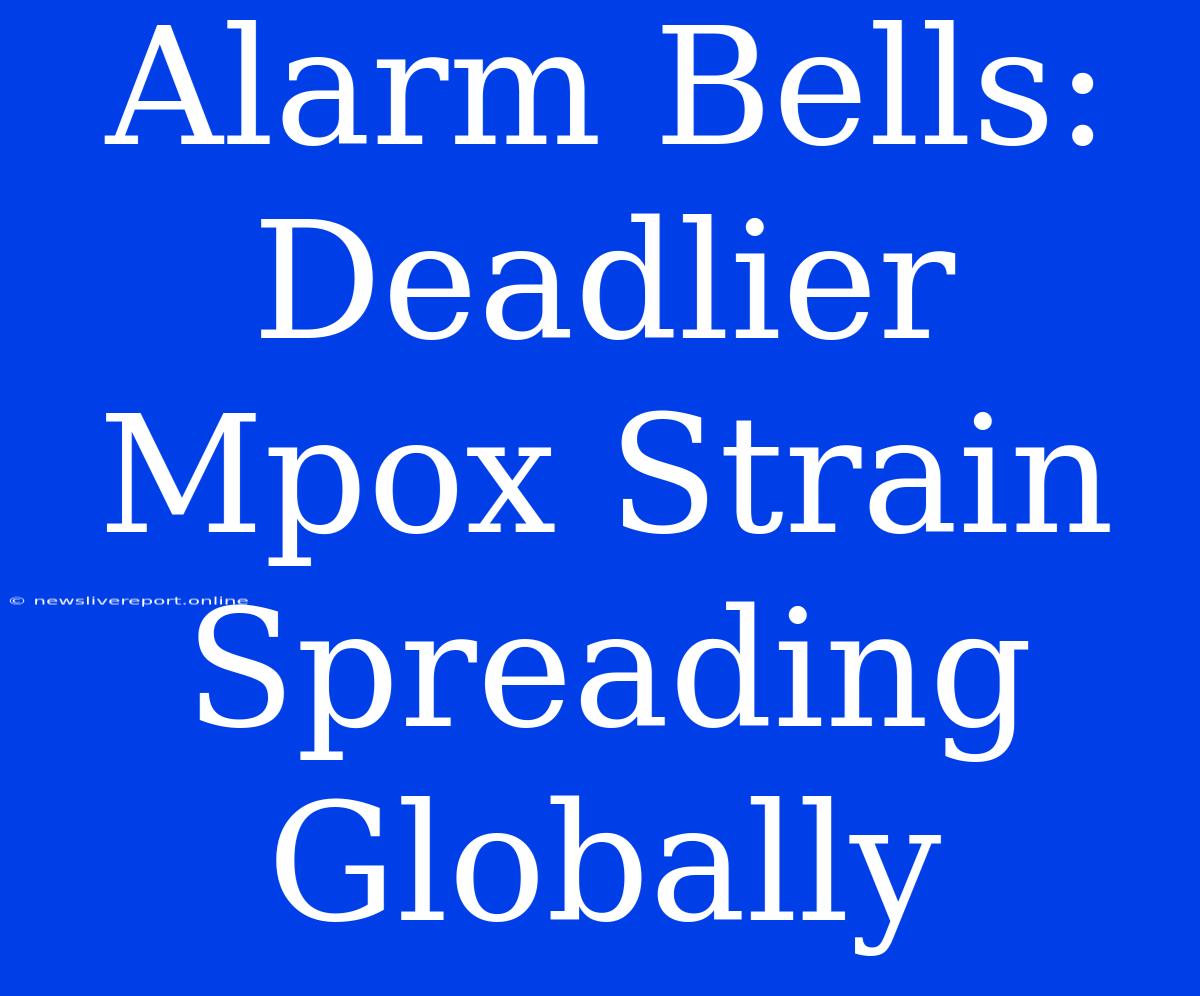Alarm Bells: Deadlier Mpox Strain Spreading Globally
The World Health Organization (WHO) has recently sounded the alarm over a new and potentially more lethal strain of mpox, raising concerns about a potential resurgence of the virus. This strain, characterized by faster viral replication and increased transmissibility, has been detected in several countries, prompting a renewed sense of urgency.
A New Threat Emerges
The mpox virus, previously known as monkeypox, has been circulating for years, but it was primarily confined to central and western Africa. However, a global outbreak began in 2022, sparking widespread concern. While the current outbreak has been largely contained, the emergence of a new, more virulent strain has raised significant alarm.
Here's what we know so far:
- Increased Virulence: The new strain exhibits faster viral replication, which may lead to quicker symptom development and potentially more severe illness.
- Enhanced Transmission: This strain appears to spread more easily, raising concerns about a potential rise in cases and a wider geographic spread.
- Global Distribution: The new strain has been detected in several countries, underscoring its potential for widespread dissemination.
Symptoms and Risk Factors
Symptoms of mpox typically include:
- Fever
- Headache
- Muscle aches
- Swollen lymph nodes
- A rash that starts on the face and spreads to other parts of the body
Individuals with weakened immune systems, pregnant women, and young children are at higher risk of developing serious complications from mpox.
Prevention and Response
While there is no specific treatment for mpox, antiviral medications can be used to manage the symptoms and prevent complications. Vaccines are available and are highly effective in preventing mpox infection.
The WHO is urging countries to:
- Strengthen surveillance systems to detect and track new cases.
- Increase vaccination efforts to protect vulnerable populations.
- Develop and distribute antivirals to treat mpox infections.
The Road Ahead
The emergence of a more lethal mpox strain poses a significant public health threat. It underscores the importance of global collaboration in tackling emerging infectious diseases. Continued surveillance, vaccination, and prompt treatment are crucial to prevent a large-scale resurgence of mpox.
While the situation is concerning, it's important to remain informed and take preventive measures. By staying vigilant and working together, we can minimize the impact of this new threat.

